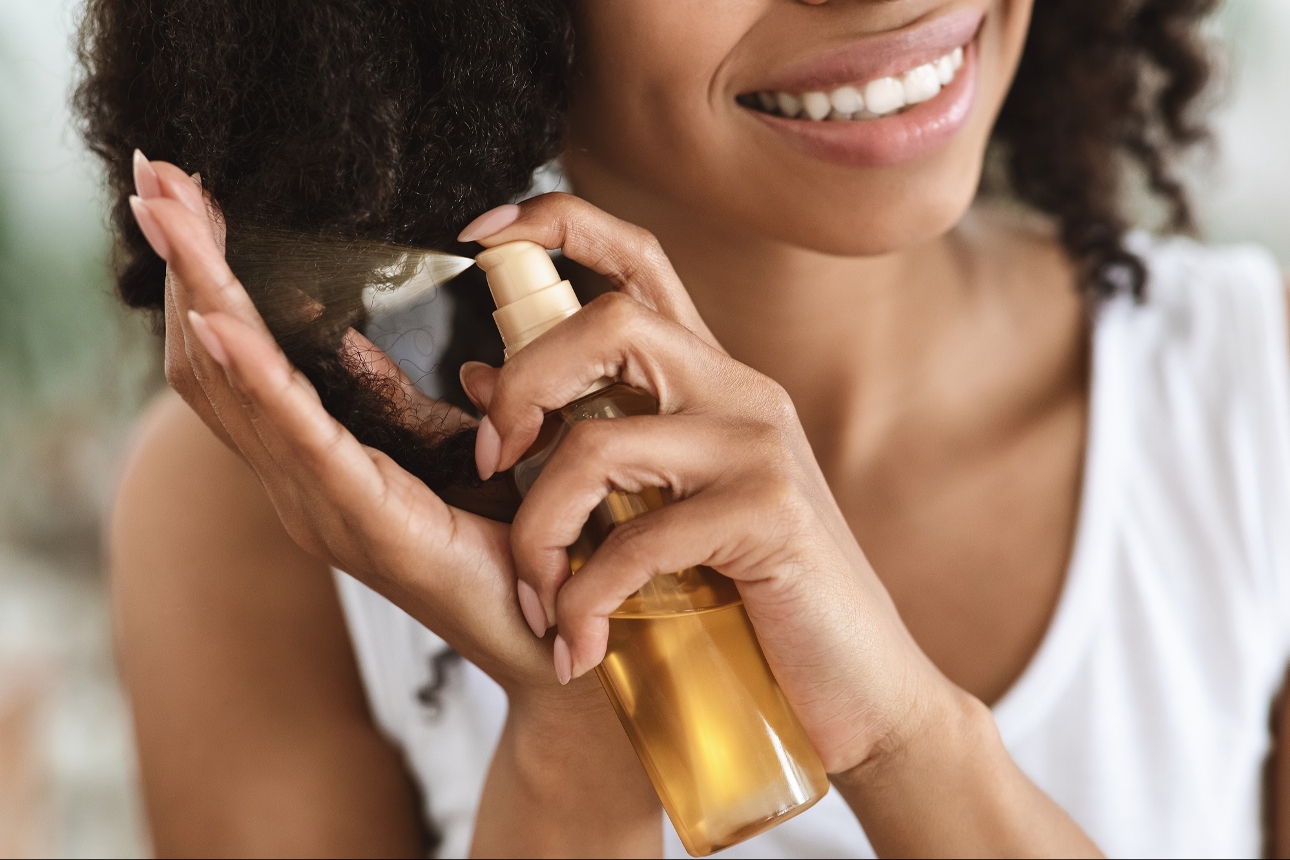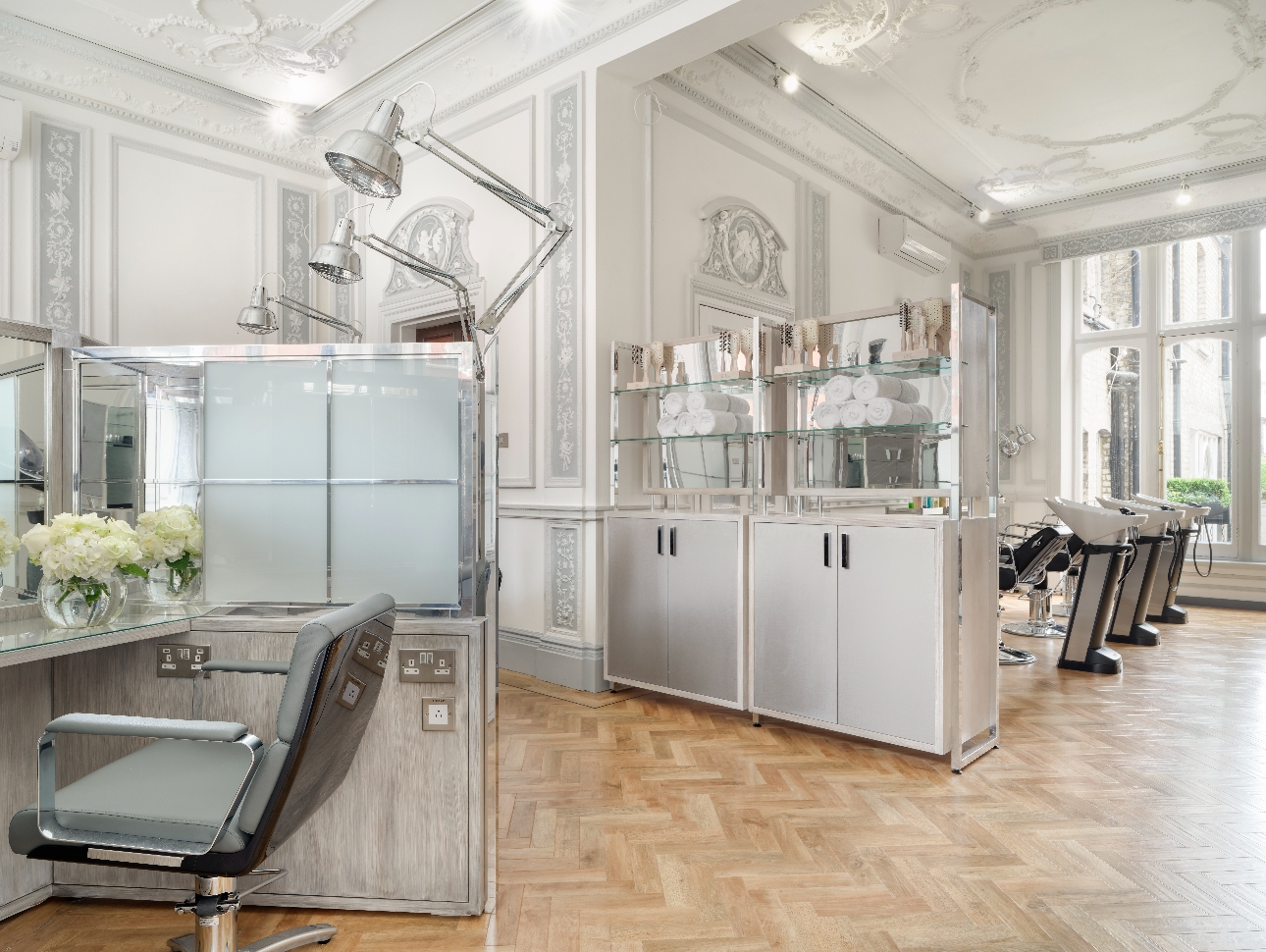The healthy hair guide
Anabel Kingsley, daughter of renowned trichologist Philip Kingsley, is a consultant trichologist and president of global brand Philip Kingsley

Anabel Kingsley, daughter of renowned trichologist Philip Kingsley, is a consultant trichologist and president of global brand Philip Kingsley with clinics in London and New York. Inspired by her father from an early age, she has an immense passion for hair and scalp health. The depth of her knowledge in the field is practically endless, so who better to turn to for advice on getting your locks wedding-ready? Here, Anabel gives us the benefit of her wisdom on everything from achieving the right length for that perfect up do, to nutrition and the impact of stress.
DRY HAIR PRONE TO BREAKAGE? Dry hair usually occurs as a result of too much heat-styling and bleaching, as well as UV, chlorinated and salt water exposure. You should care for your scalp in a similar way to the skin on your face. I'd suggest shampooing daily if you can, but certainly don't leave more than three days between washes.
Daily toning of the scalp is also helpful. Apply a soothing, antimicrobial toner containing witch hazel or camphor after shampooing, conditioning and towel-drying hair. You could also benefit from gentle weekly exfoliation. Exfoliating masks should be applied pre-shampoo and left on for around 20 minutes. Good ingredients to look out for are aloe vera and betaine salicylate. Then, to moisturise dry strands, work a pre-shampoo conditioner into your hair once a week, or twice if it's particularly parched.
When you heat-style, hold the dryer at least 12 inches away to avoid placing excessive heat on the hair shaft. Then stop when it's only just dry, as applying heat to already dry hair will remove moisture from within rather than the water sitting on top. Limit use of straighteners and tongs as much as possible, but when you find yourself reaching for them be sure to use a heat protective spray or serum such as Philip Kingsley's Finishing Touch Polishing Serum and don't go over the same areas repeatedly.

HELP, MY HAIR'S NOT GROWING! Take care of your scalp; it's your hair's support system. A healthy scalp promotes healthy hair growth. Following the aforementioned daily cleanse, tone and mask regime is a great first step on the road to luscious long locks.
Provided you're not experiencing hair loss, but simply want to maximise your hair's growth potential, eating well will certainly help. Hair isn't an essential tissue – it's the last part of you to receive nutrients, but the first to have them withheld. So, any nutritional deficiency can negatively impact your hair long before it affects your general health.
Eating at least a palm-sized portion of protein and a serving of complex carbohydrates at breakfast and lunch will help your strands to grow long and strong. It's important never to skip breakfast. This is the most important meal of the day for your hair as it's when energy levels to the follicles are at their lowest. A great example of a healthy-hair breakfast would be poached eggs with whole-wheat toast, quinoa porridge with berries and toasted almonds, or smoked salmon on a bagel.
Don't be afraid to snack as the energy needed to form hair cells drops four hours after eating. I recommend reaching for a nutrient-dense healthy snack such as crudité and hummus, fresh fruit or toast with almond butter.
Overall, make sure you eat a balanced diet – if you're deficient in a certain vitamin or mineral it can affect your hair and it's growth. Amino acids, omega 3, zinc, iron and vitamin B12 are all crucial. However, try to avoid mercury-rich fish, such as tuna and swordfish as high levels can affect the growth cycle. Likewise, if you suffer from dandruff, cut back on full-fat dairy products as this can trigger flaking and itching.
Finally, be gentle. Unlike your skin, your strands don't regenerate if they're damaged. So, be careful when you style, brush, detangle, shampoo and towel dry.

WHAT PRODUCTS ARE BEST FOR ME? Like skincare, there's no one-size-fits-all solution to haircare. The integrity of a product and what hair texture it will work for largely depends on the concentration and quality of the ingredients, which is well nigh impossible to ascertain from the labels. We have to trust the description given as a guide, but I'd recommend that as a rule of thumb you don't choose a shampoo based on normal, oily or dry descriptions, as your normal won't be someone else's normal. Instead, pick one that's formulated based on hair texture.
The following should help steer you in the right direction:
- Afro Caribbean hair. Often prone to damage as weak points form along the hair shaft where curls occur, and is also highly porous. Choose a shampoo that intensively moisturises and gently cleanses at the same time.
- Coarse hair. More porous than medium or fine textures, it's prone to moisture loss becoming dry and frizzy. Use a re-moisturising shampoo with anti-static ingredients.
- Medium texture. Tends to get slightly oily at the roots and dry at the ends. Use a moisture-balancing shampoo to address both needs.
- Fine hair. With more oil glands on the scalp hair can become lank and easily weighed down. Use a cleansing yet gently bodybuilding shampoo rich in thickening proteins.

STRESS TEST Stress can really do a number on your hair, mainly because it's bad for your health in general. When you're feeling stressed, your brain doesn't distinguish between the stress you might be under at work or from planning a wedding, and the kind you'd experience in a life-or-death situation. As such, the chemical reactions produced in your body are similar and result in a fight or flight response, triggering unwanted hair and scalp effects such as excessive daily hair fall and increased sebum production.
In terms of stress management techniques, it really depends on what works for you and your schedule. Some find Pilates and yoga classes helpful, while others prefer at-home meditation or using mindfulness apps a couple of times a day. Alternatively, you may find walking, swimming or reading relaxing.
Hair loss in itself is stressful and while it's difficult to remain calm, I advise my clients to be patient, trust in the treatment and leave their worries with us at the clinic. Once a person steps through our doors, it's our job to put them at ease and provide them with a comprehensive treatment plan. I also advise them not to Google! There's so much mis-information online, and the internet can come up with some pretty scary and unhelpful things.
For further information on specific hair-related concerns and how a trichologist might be able to help you, check out www.philipkingsley.co.uk, where you can also find the full Philip Kingsley product range.




